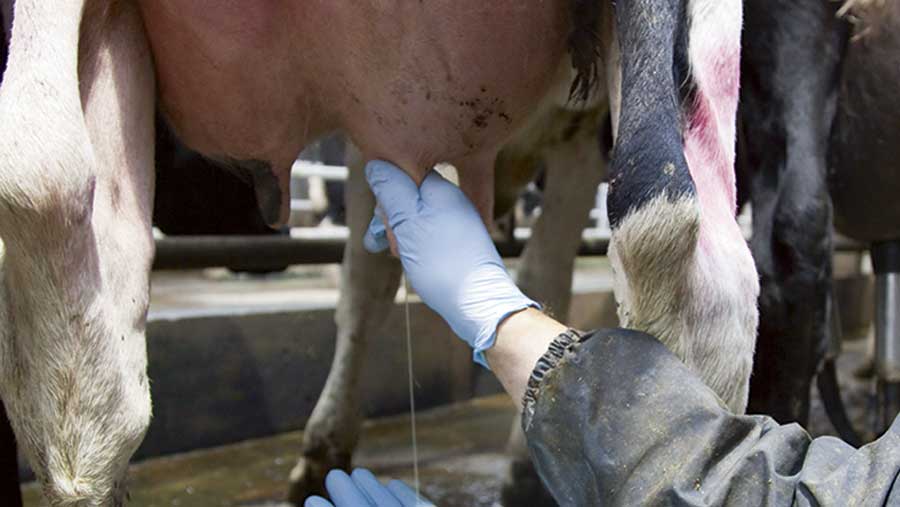Cows with mastitis have poorer fertility, study shows
 © Anthea Kitching
© Anthea Kitching Mastitis can have a significant impact on conception rates in dairy cows at first service, according to a study by the University of Wisconsin.
An analysis of 3,164 cows across four Wisconsin dairy herds found that the disease occurred during the breeding risk period (three days before AI and up to 32 days after) profoundly reduced the cow’s chances of conceiving.
Cows were bred using an ovsynch programme to fix the pre- and post-breeding risk period with the type of mammary infection diagnosed and its effect on fertility analysed.
See also: Mastitis index launch to bolster herd resistance
Dr Paul Fricke, of the department of dairy science at the University of Wisconsin,presented the results at the Total Dairy seminar at Keele University in Staffordshire on Thursday (15 June).
He explained that when cows are infected with mastitis, tissue inflammation causes the production of prostaglandin which regresses corpus luteum (CL), a temporary endocrine structure needed to maintain a pregnancy.
Results showed cases of both clinical and sub-clinical mastitis lowered conception rates by 11.3% and 8.1% respectively.
But interestingly, mastitis challenges prior to the risk period had no negative impact on fertility.
Dr Fricke explained this was because the cows had not been served yet so CL regression would not matter.
He concluded: “You can’t have high fertility regardless of your fertility programme if you have a problem with mastitis.
“The bottom line is in order to have really good pregnancy [rates], you have to clean up mastitis problems. Less is better.”
